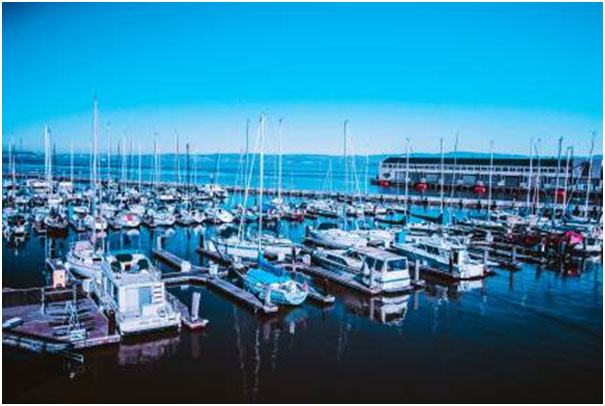
Although the world of lawyers suffers from overpopulation, one specialty with excellent promise is that of admiralty law. Following undergraduate school, lawyers must attend law school (three years) and pass the state bar examination prior to entrance into the profession. Admission to law school demands very good under-graduate grades and a good score on the LSAT (Law School Aptitude Test). Those wishing to emphasize admiralty law pursue general legal studies in law school, and in the second and third year they take courses in their special area of interest. Only a few schools offer an admiralty or a marine law concentration. One unique graduate law program, Ocean and Coastal Law, exists at the University of Miami’s School of Law.
WOMEN AFLOAT
In today's marine and maritime world, women participate in the full range of careers. They serve in numerous oceanography and marine science positions both in saltwater and freshwater environments. For many years, their contribution to marine ecology has been unprecedented. For example, at North Carolina State University, Lundie Spence works with school teachers and students in her capacity as a marine science adviser. Both the educators and their students are growing in their appreciation of the marine environment.
In the maritime world, several women work aboard ships in various capacities. One of the first women to graduate from a maritime academy, Debbie Doan, works for Lykes Brothers Steamship Company. Another, Susan Janis, serves as an officer aboard the Exxon Boston, an oil tanker.
In Florida, Nancy Gilligan, armed with her boat captain's license, takes out fishing parties and charter groups. Additionally she transports sailboats and yachts for their owners.
On shore, Laurie Seyller serves as a sheet metal worker at Lockheed Shipbuilding in Seattle. She is just one of many women in the ship construction business.
Joy Wolf has served in numerous executive positions in the field of marine science education. She is Director of Education for Sea World in San Diego and has served as President for the National Marine Educators Association. The latter is a professional association of educators committed, "to make known the world of water, both fresh and salt."
Numerous women serve as enlisted personnel and in the officer corps for the Navy and Coast Guard. They enter through enlistment, the academies, the Officer Candidate Schools, or NROTC and work in a variety of capacities on shore and aboard ship. In the very demanding but romantic world of the sea, one's sex plays no factor in obtaining employment.
See the following articles for more information:
- Find Your Calling: A Checklist
- 5 Ways To Build Your Career Outside of the Office
- How To Impress Your Interviewer When Making a Career Change
- 5 Tips For Successful Networking
